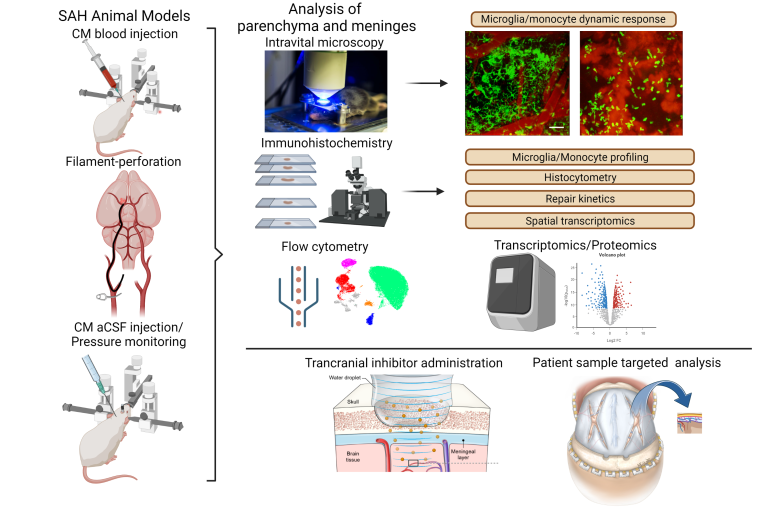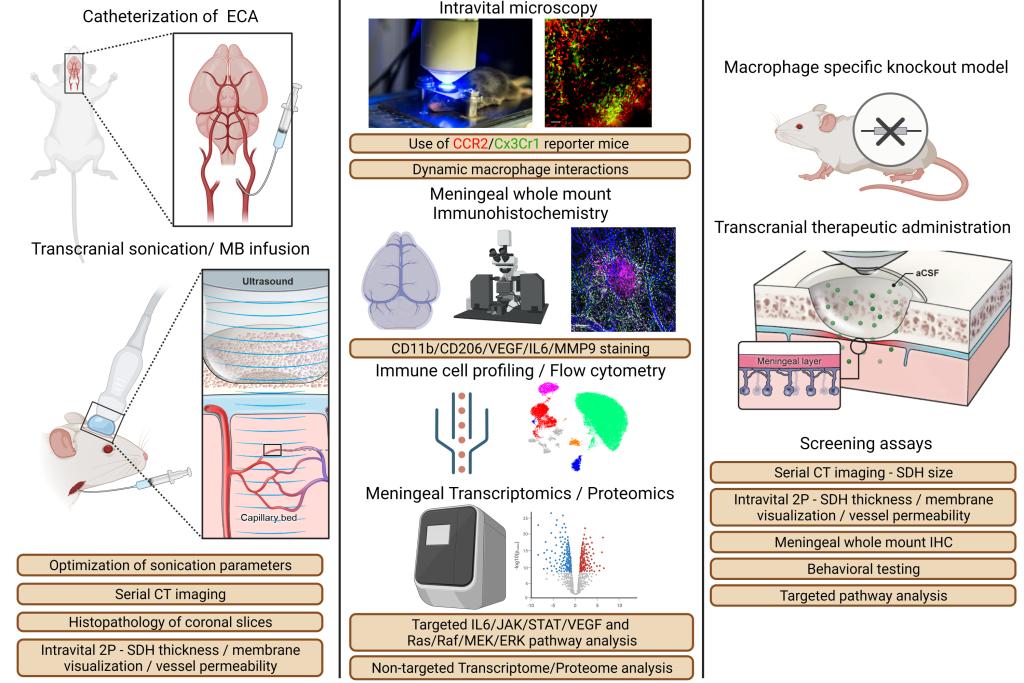Innate immune pathways in cerebrovascular disease
Our lab explores the role of the innate immune system in damage and repair following ischemic and hemorrhagic insults to the brain. We focus on neurosurgical diseases including aneurysmal subarachnoid hemorrhage, ischemic and hemorrhagic stroke, and subdural hemorrhage.
Meet the Principal Investigator
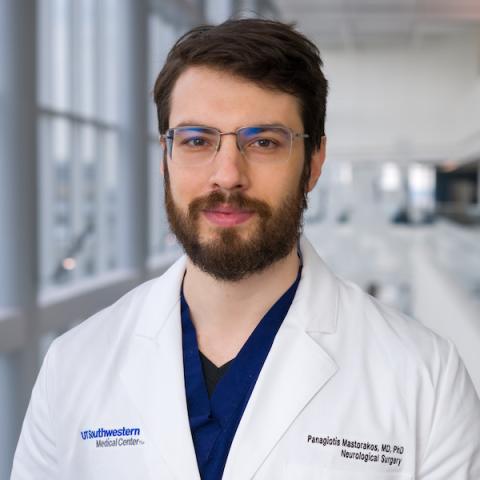
Panagiotis Mastorakos M.D., Ph.D.
Dr. Panos Mastorakos was raised in Athens, Greece. He pursued his education in medicine, earning both a medical degree and a doctoral degree in neurosurgery at the University of Athens School of Health Sciences. His medical journey continued with a neurosurgery residency at the National Institutes of Health and the University of Virginia. During this period, he also received advanced training in endovascular neurosurgery. Subsequently, he further honed his expertise by completing a cerebrovascular fellowship at Thomas Jefferson University. As a cerebrovascular neurosurgeon, his primary clinical focus centers on the management of vascular lesions, ischemic, and hemorrhagic stroke.
In addition to his clinical work, Panos is deeply committed to research. He initially pursued basic/translational research training at Johns Hopkins University under the mentorship of Dr. Justin Hanes and Dr. Rangaramanujam Kannan. His research efforts were primarily directed towards optimizing the delivery of nanotherapeutics to the central nervous system. Later on, his research interests expanded to encompass secondary injuries associated with cerebrovascular diseases. To delve into this field, he sought training in neuroimmunology under the guidance of Dr. Dorian McGavern at the National Institutes of Health. His research in this area focused on understanding the responses of myeloid cells following hemorrhagic stroke, utilizing a combination of immunology techniques to elucidate the interplay between invading monocytes and microglia and their roles in acute injury and repair.
In 2023, Panos joined UT Southwestern as an Assistant Professor in the Departments of Neurological Surgery and the O'Donnell Jr. Brain Institute. His current research is concentrated on developing treatments for ischemic and hemorrhagic insults to the brain. He is particularly interested in unraveling the immune response triggered by acute intracranial pressure fluctuations in the context of aneurysm rupture. Furthermore, he is dedicated to leveraging targeted immunomodulation to enhance recovery from ischemic stroke.
Meet the Team

Vaidehi Shah
Research Associate
Originally from Gujarat, India, Vaidehi earned her Master’s in Biotechnology from the University of Texas at Dallas in 2023, following a Bachelor's in Pharmacy. Her research focuses on immune responses in the brain and dura during subarachnoid hemorrhage and stroke, using MCA occlusion and blood-induced ICP spike models. She brings expertise in tissue culture, IHC, flow cytometry and in vivo multiphoton microscopy and works with both in vivo models and ex vivo human brain tissue. Outside the lab, Vaidehi enjoys traveling, exploring new cuisines, and spending time with friends and family.
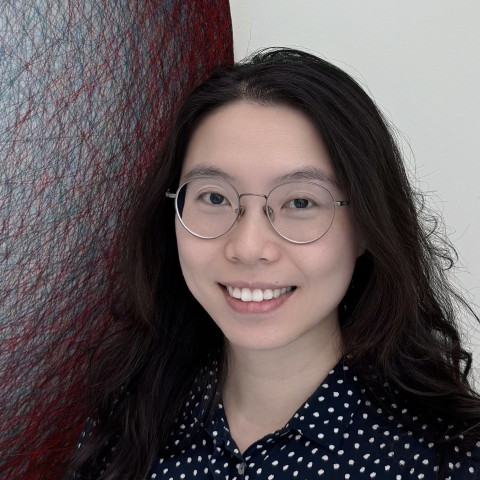
Lu Han, M.D., Ph.D.
Postdoctoral Researcher
Born in Kunming, China, Lu earned both an M.D. and Ph.D. from Shanghai Jiao Tong University. Her research focuses on immune responses following stroke, utilizing the middle cerebral artery occlusion (MCAO) model and ex vivo human brain tissue to investigate post-injury neuroinflammation. She is currently expanding her work to include single-cell RNA sequencing to uncover immune cell dynamics and heterogeneity after stroke. Outside the lab, She enjoys spending time with family, playing with her cats, and catching up on sleep.
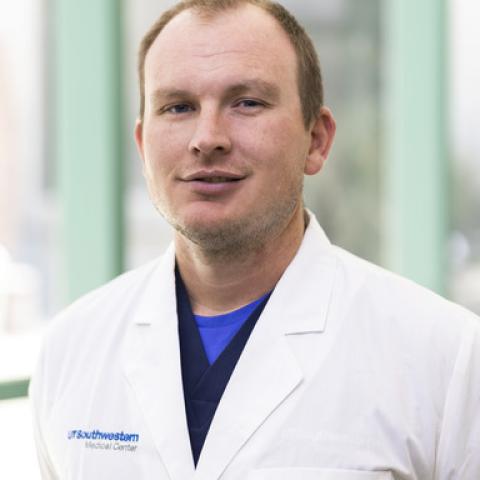
Jordan Mattke, Ph.D.
Postdoctoral Researcher
Jordan is from Temple, Texas. He received his Ph.D. from Institute of Biomedical Studies at Baylor University in 2024. His thesis focused on immune responses and inflammation as it related to islet transplantation and pancreatitis. Currently, he is working on effect of intracranial pressure spikes modeling subarachnoid aneurysm rupture on the brain and dura barrier immune system. During his free time, he serves as a sports official for football and loves playing golf. Additionally, he enjoys spending time with his family and engaging in sports.
Featured Publications
Antimicrobial immunity impedes CNS vascular repair following brain injury. Mastorakos P, Russo MV, Zhou T, Johnson K, McGavern DB. Nature Immunology. (2021) PMID: 34556874
Temporally distinct myeloid cell responses mediate damage and repair after cerebrovascular injury. Mastorakos P, Mihelson N, Burks S, Latour L, Frank J, McGavern D. Nature Neuroscience (2021) PMID: 33462481
The Anatomy and Immunology of Vasculature in the Central Nervous System. Mastorakos P, McGavern D. Science Immunology. (2019) PMID: 31300479
Contact us
Email: panagiotis.mastorakos@utsouthwestern.edu
Phone Number: 214-648-2980
Lab Address
Peter O'Donnell Jr. Brain Institute
6124 Harry Hines Blvd, NS9.320AA
Dallas, TX 75390
Office Address
Peter O'Donnell Jr. Brain Institute
6124 Harry Hines Blvd, NS9.310
Dallas, TX 75390
Mailing Address
UT Southwestern Medical Center
5323 Harry Hines Blvd.
Dallas, TX 75390-8855
Get in touch
We are always looking for highly motivated people to join our research team or collaborate with us. We are committed to better understanding the innate immune pathways implicated in cerebrovascular diseases. If you are interested in joining our team email a cover letter and CV to Dr. Mastorakos.
